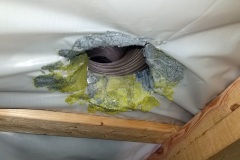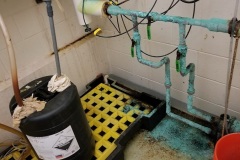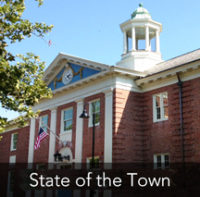 November 1
November 1
- Drumlin Farm, 208 South Great Rd. (5:51 a.m.) — Officers assist DPW with removing a tree.
- Wells Road (7:15 a.m.) — Report of several vehicles struck while parked. Report taken.
- Lincoln Road (8:02 a.m.) — Eversource requests an officer to assist them with traffic.
- 86 Conant Rd. (3:11 p.m.) — Officers investigating a case of wire/internet fraud.
- Lincoln Road (8:12 p.m.) — Report of motorized scooter traveling erratically; unable to locate.
- Bemis Hall (9:45 p.m.) — Officer assisting with traffic as school dance ends.
- Hanscom Air Force Base (11:20 p.m.) — Request to assist with a missing person; cancelled as person was located.
November 2
- Lincoln School (8:28 a.m.) — Officers assisting with Special Town Meeting
- 4L North Commons (11:22 a.m.) — Caller reports people going door to door. They were census workers.
- Route 126 (2:25 p.m.) — Maynard Police Department had been in pursuit of a car last seen on Concord Road in Wayland heading into Lincoln. Pursuing car never entered Lincoln.
- 122 Patterson Rd., Hanscom Air Force Base (2:57 p.m.) — Assisting resident with a juvenile matter.
November 3
- Bemis Hall (4:58 p.m.) — Wallet found; owner contacted.
- 121 Weston Rd. (7:49 p.m.) — Caller reports her daughter saw a vehicle in their driveway earlier in the day that drove off at a high rate of speed.
- Route 2 eastbound (10:41 p.m.) — Officer on construction detail reported witnessing a car off the road after nearly hitting a deer. State Police requested to respond.
November 4
- 25 Bypass Rd. (6:50 a.m.) — Well-being check; all is fine.
- 231 Aspen Circle (4:30 p.m.) — Assisting a resident with explaining a legal document that was received in the mail.
- Lincoln Police Department, 169 Lincoln Rd. (6:16 p.m.) — Party having an issue with GPS monitoring system. Assisted party with getting in touch with Massachusetts Probation Service.
- 167 Lincoln Rd. (6:43 p.m.) — Resident reported a vehicle pulling into neighbor’s driveway. Officer spoke to the resident; everything was fine.
November 5
- Bedford Road (4:22 p.m.) — Minor motor vehicle crash, no injuries. Parties exchanged paperwork.
November 6
- Department of Public Works, 30 Lewis St. (3:54 am.) — Suspicious vehicle at DPW; everything was fine.
- Bedford Road (9:47 a.m.) — Assisting DPW.
- 16 Granville Rd. (10:40 a.m.) — Suspicious vehicle in a neighbor’s driveway. Officer found that they’re working at the residence.
- 17 Ridge Rd. (3:14 p.m.) — Reporting party lost his car keys.
- Lincoln Public Library (8:24 p.m.) — Caller reported problem with an alarm panel.
November 7
- Cambridge Turnpike westbound (1:29 a.m.) — Deer struck by car, wandered off into the woods.
- Bypass Road (2:13 a.m.) — Coyote struck on Rt. 2A; officer dispatched the injured animal for humanitarian reasons.
- North Great Road (1:38 p.m.) — Report of a person walking in Minute Man National Park with a torch and filming themselves. Ranger Grossman advised that the person was walking for a cause.
- Lincoln School (3:09 p.m.) — Caller requesting a check on an elderly party walking. The party was fine.
- South Great Road (5:51 p.m.) — Minor motor vehicle crash, no injuries.
- 8 Boyce Farm Rd. (6:56 p.m.) — Assisting a resident with locating an item.












